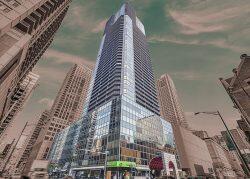As some pandemic protections for homeowners come to an end, Chicago housing advocates say communities, especially in the city’s pandemic-hit south and west, are at risk.
Almost 160,000 Illinois homeowners and renters are already behind on payments and worry that they’ll lose their homes, the Chicago Tribune reported. Some 5 percent of the state’s home loan holders either face foreclosure or haven’t made payments.
The Chicago area may have less of a buffer against foreclosures than other parts of the country, particularly the city’s two-, three- and four-unit residences. They’ve historically been income-producing opportunities for homeowners and have provided more affordable family-sized housing for renters.
“Homeownership is rising across the city of Chicago,” Danielle Matthews, associate director of homeownership services for Neighborhood Housing Services of Chicago, told the newspaper. “However, we do know homeowners will be foreclosing at a higher rate due to Covid hardships in these particular communities on the South and West sides.”
The strong market may allow some people to sell their homes and avoid foreclosure. Rental assistance programs such as the Chicago Flats Initiative, which works to preserve those buildings, could also help.
Yet researchers at the city’s Urban Institute remain concerned that slow home equity growth may still put homeowners, residents and landlords at risk.
“We’re concerned for any family going through foreclosure, but our big concern is for the two- to four-flat, ma-and-pa homeowner that only gets money from one apartment to pay their mortgage, to pay their property taxes, to do repairs on the building,” said Diane Limas, a board member at Communities United, which is part of Chicago Flats. “And now, all of a sudden, there’s no money coming in.”
Another potential problem: Borrowers will have to make up payments deferred because of the pandemic, pushing up mortgage rates.
Read more

[Chicago Tribune] — Victoria Pruitt
